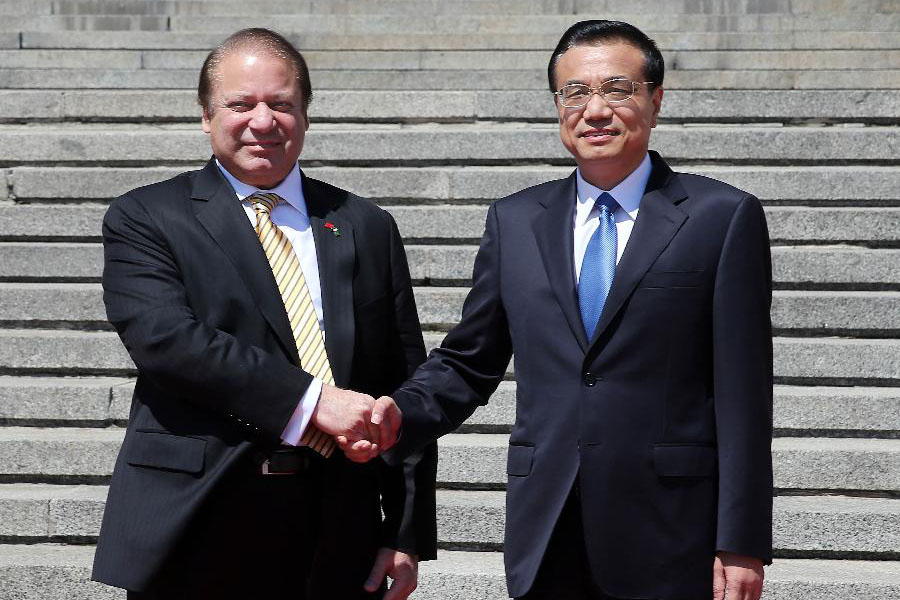
Premier Li Keqiang (R) holds a welcoming ceremony for visiting Pakistani Prime Minister Nawaz Sharif before their talks in Beijing, capital of China, July 5, 2013.[Photo by Liu Weibing/Xinhua]
BEIJING -- China and Pakistan have agreed to step up their partnership and accelerate the regional economic integration process through better cooperation in various fields.
The consensus was reached when Premier Li Keqiang held talks with his visiting Pakistani counterpart, Nawaz Sharif, on July 5 in Beijing.
Li recalled fondly his visit to Pakistan in May, noting that the China-Pakistan partnership bears more strategic significance in the new context of the international situation.
“China always prioritizes its ties with Pakistan in its foreign policies,” Li told Sharif.
Li said a western development strategy has been adopted as a significant and long-term policy to promote the country’s reform and opening up process, noting that such a policy could work well with Pakistan’s national economic development endeavors and, as a result, deepen regional cooperation in the area of South Asia.
To promote regional peace, stability and development, he called on Asian countries, including China and Pakistan, to maintain their confidence in Asian economic growth and regional cooperation and step up the region’s economic integration process.
“China hopes the Pakistani government will take effective measures to safeguard the safety and security of Chinese citizens and institutions in Pakistan,” Li added.
Li and Sharif agreed to bolster the bilateral strategic partnership by intensifying high-level exchanges, stepping up trade cooperation, strengthening the mutual linkage and usage of the two markets and two infrastructures, cementing humanitarian exchanges and working closer on defense, security and counterterrorism agendas.
They also agreed to maintain close coordination and cooperation on significant regional and international issues, in a bid to safeguard the common interests of developing countries.